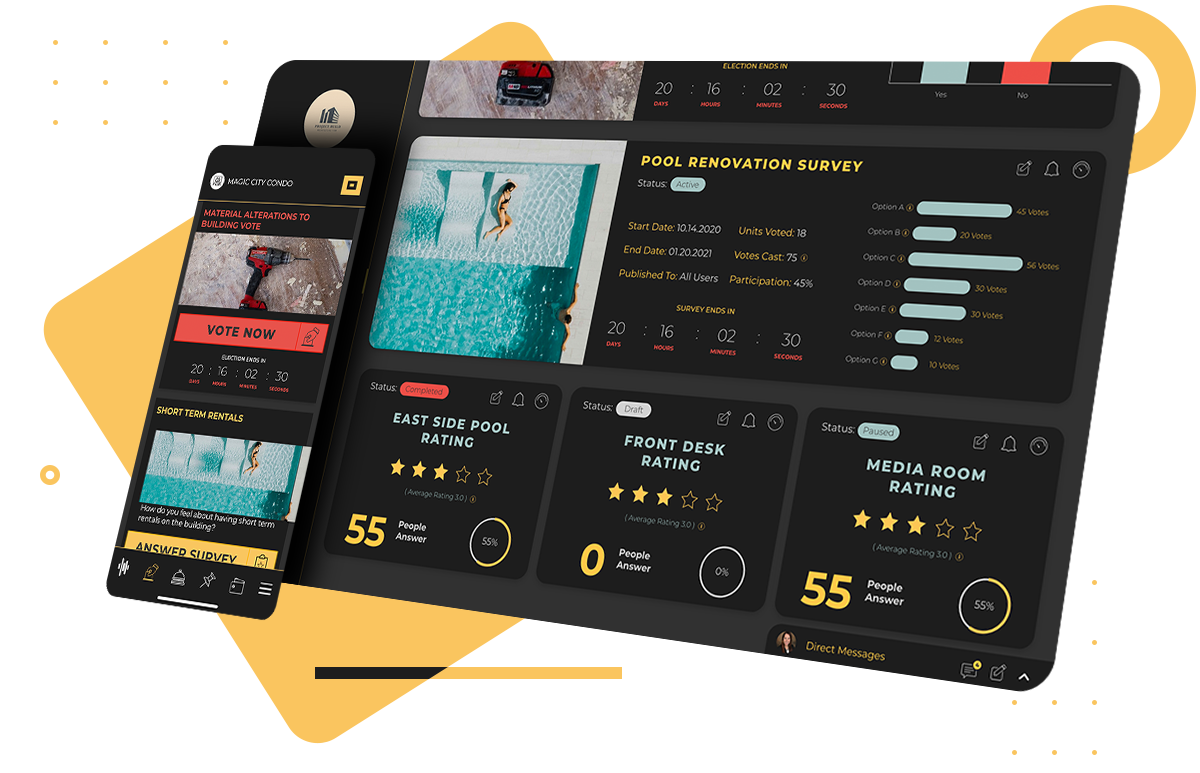In recent years, people have been more drawn to participatory activities, whether it’s through social media activism, neighborhood watch groups, or grassroots political campaigns. When it comes to associations, being an active member of property starts at the Community Association level—the heart and mind of every building. But just like politics, serving the community requires a certain level of dedication and a distinct skill set; if you’ve ever engaged in the process of running a building, you know it needs a calling and takes a lot of patience and dedication to manage the different daily operations successfully.
Beyond a set of managerial aptitudes (i.e., hard skills), including commitment, leadership, companionship, and a long-term vision that delivers cohesive results, anyone interested in joining their HOA or Condo as a board member should have a series of soft skills that encompass patience, amicability, and honesty. It involves juggling multiple aspects of connecting with people; at times, the Community Association members must be outspoken, direct, and participative, whereas, in other moments, discretion and confidentiality are of utmost importance. It’s essential to have a unique voice that contributes to the overall success of the property, but remember that the primary obligation rests in the community’s needs (and not personal whims).
Having your ear to the ground is important to know what’s happening in each area of the building; listening to the owners’ and tenants’ advice will allow a free-flowing dialogue where all points of view are considered—much required to find shared grounds that help advance the collective—but remember that you’re in a position that involves decision making and your point of view is expected. That’s precisely why having a diverse range of skills and perspectives is so important in a role as a board member. You’re pretty much cut for the role if you check several of the aforementioned personal attributes. All that’s left is making sure to:
• Meet the basic requirements: which are pretty simple. Besides being a resident, you just need to postulate yourself for the role. Having some knowledge of how to run a building helps, but it’s always great to have diverse inputs from different backgrounds. Anyone can be part of the board.
• Be acquainted with the latest property management technology: Softwares like Asana, Zoom, Google Hangouts, and ONR are essential instruments for the Community Association of the 21st century.
• Courses: Adding some extra courses will give you more tools to apply in your new role. They can range from accounting to public administration and human resources to the more technically practical (i.e., iOS or Windows). Complete certifications such as the Certified Apartment Manager (CAM) or Residential Management Professional (RMP) will look good on your resume and help open doors.
• Be a volunteer: Being on the board involves connecting with many people daily. The best way to learn the ropes may be by dedicating your spare time to supporting elderly homes, orphanages, or centers for the homeless. Interacting with people in vulnerable situations will help develop compassion and empathy.
• Stay in the loop: Sign up for industry newsletters, follow key figures on social media, and keep track of congresses and summits happening in your neck of the woods.
Other important traits of a good Community Association board member:
• Honesty: Sometimes, being upfront about what can and can’t be done might be difficult to swallow, but being transparent about it is paramount to running a tight ship. Of course, this requires a soft delivery and excellent interpersonal skills. Talk to others like you would to friends and family.
• Resourcefulness: Planning will save you time, energy, and costs, but when the unexpected happens, you should be able to figure out ways to solve problems. A burst pipe, environmental calamity, or social unrest may require you to act on your instinct.
• Project management: Being on the HOA or Condo requires more than just sitting behind the computer answering emails and calls. Although this will take up much of your time, building inspections, in-person meetings, and property showings will be part of your daily tasks. Organizing your schedule accordingly will help you meet all your obligations promptly.
So, do you think you’ve got what it takes to run an association? Don’t worry; you’re not alone—ONR is here to support you with a wide array of tools that will simplify your job and facilitate the lives of the management team and all those who live in your building.



